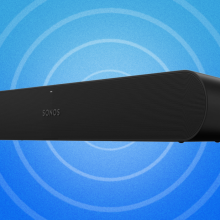WordPress is among the world’s most popular website software options in use today — and there are good reasons for that. It’s free, open-source, and allows you to create your own website without needing to be fluent in programming languages (though if you are well-versed in them, you can definitely still use it). Plus, while WordPress was initially built as a blogging platform, numerous themes and plugins have helped it grow, and today it can be used to create a range of different kinds of websites, from blogs, to portfolios, to ecommerce sites.
In fact, if you’re looking to build an ecommerce store, WordPress is easily one of the best platforms to use because of how dynamic, flexible, and powerful the software is. For example, Quero Shoes and Blue Star Coffee Roasters are two ecommerce sites built with WordPress.
If you’re new to creating a WordPress ecommerce website, you’ll probably have lots of questions, like, do you need a theme (short answer: yep), should you use WordPress.org or WordPress.com, and do you need your own domain and web host? We’re here to break it down for you.
Why do you need a special WordPress theme for ecommerce?
Themes are essentially software packages that determine what your site looks like, how it’s laid out, and how its many features — like menus and sidebars — work. (Themes are what WordPress calls templates, basically.) Picking a good theme will not only help you get up and running faster, sans coding skills, but it will also determine how easily your customers find information and make their purchases in your store. In other words, themes enhance your site’s performance, controlling how it appears to users and how well it operates.
For example, some will help make your shop mobile-friendly, which will make the store more accessible to customers, no matter what platform they’re on.
In addition, some WordPress ecommerce themes come with extra security features to help protect you and your customers.
There are a number of free and paid themes, and while the free themes are good, the paid ones offer better design, usability, SEO features, and customization.
It’s important that you pick a theme that’s either designed specifically for ecommerce sites or that has all the features you’ll need to lay out your store. Some themes come bundled with a number of useful ecommerce plugins (more on those below).
What features does an ecommerce WordPress theme need?
When you’re picking an ecommerce WordPress theme, there are few features you’ll want to consider, including:
Design: Of course, design is somewhat subjective. What you find visually appealing is ultimately a matter of personal preference. But looks aren’t everything. Not only will you want to pick a theme that fits the feel of your shop, but you’ll want one that’s user-friendly. This means picking a design that is easy to navigate. For example, you might want to consider picking a theme that allows users to find what they’re looking for within three clicks.
Loading speed: Never pick a theme that takes forever to load — you’ll lose too many customers, even if the layout looks good. That’s why it’s a good idea to test out themes before you buy one.
Mobile-friendly compatibility and responsiveness: If your WordPress theme is compatible with mobile devices, it will adapt to the device a user is using. This will ultimately improve usability and drive business.
Security: Consider a theme that adds extra layers of security to your site. This will help keep your business safe.
What’s the difference between WordPress.org and WordPress.com for ecommerce?
WordPress.org is where you can download the free, open-source software to upload to your web host.
WordPress.com, meanwhile, is run by the commercial company Automattic. It's a service that you can use to build and host a website without having to download the software. However, it has its limitations, especially when it comes to business, and is usually thought of as less powerful and better for small personal sites. (When you hear of a popular business using WordPress, it’s usually WordPress.org.)
WordPress.org requires that you choose a web host for your website, whereas WordPress.com is hosted by Automattic. Self-hosting allows for more customization, but hosted WordPress.com is easier for web novices to use. Because of the business and ecommerce focus of this roundup, we chose themes for users who are planning to use the more powerful WordPress.org software.
What you'll need for your WordPress ecommerce site
If you’re creating a self-hosted WordPress site (with the software downloaded from WordPress.org), you’ll need two things:
A web host: There are three common web hosting approaches, including shared WordPress hosting (typically through hosts like GoDaddy, Bluehost, Hostgator, etc.), do-it-yourself VPS WordPress hosting, and managed WordPress hosting (through Kinsta, WP Engine, Flywheel, etc.)
A domain name: This is your website address. It needs to be unique. You can purchase one through a domain name registrar, such as GoDaddy or Namecheap.
Plugins: You’ll need at least one plugin to build your ecommerce site. Some will help you build and run your store, others will help manage inventory, communicate with customers, provide support, and ensure security.
The most popular ecommerce plugin is Woocommerce, which is owned by WordPress.org. It’s used by 39% of all online stores.
What is Woocommerce?
WooCommerce is a free WordPress plugin that adds ecommerce functionality to your WordPress website, allowing you to have an online store.
It will help you manage your inventory, and it comes with Bankers’ Automated Clearing Services for debit and credit, PayPal, and a number of other payment gateway extensions.
It also helps you set shipping options, calculate shipping price, customize the checkout process, and set default currency. It also gives you the option of turning on geolocation and automatic taxes, so your shop always displays the correct price.
Woocommerce also offers a number of security options and adds mobile-friendly compatibility to your store. Best of all, this plugin is well-supported and super easy to use because of how popular it is. All of the themes we chose here work with the Woocommerce plugin (and advertise that fact prominently).
What’s the difference between a regular license and an extended license?
The fine print on these is kind of confusing, so we’ll break it down: An extended license is for web designers and agencies who are buying the theme to use with multiple clients. So if you’re just buying one theme for yourself (or one theme for one client and one website), you don’t need to worry about the extended licenses.
Ready to get started? Here are our picks for best ecommerce themes:









